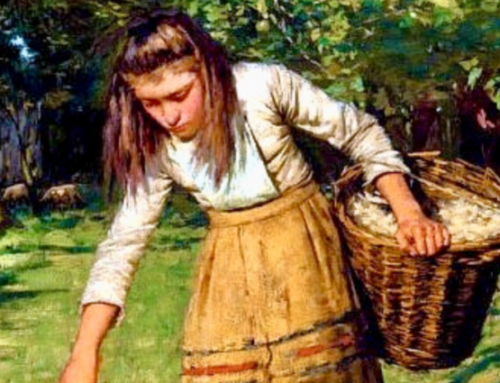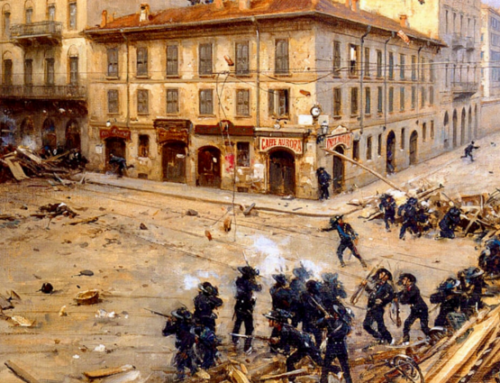Studies confirm that traditional families result in less delinquency, criminality, illness, drug use, sexual promiscuity and stress. The best family policy is carried out by the family itself. Those who need the “family” aid offered by liberal policymakers are not truly “families.”
As the next national elections loom on the horizon, many liberal candidates are calling for urgent measures to help the American family. There is impassioned talk about poverty, wage stagnation, and health care. There are yet more pleas for money and programs for those who suffer from want.
There is nothing wrong with helping the family. However, the liberal vision of the family is shallow and impoverished. It is based on emotional appeals and personal stories infused with politically-correct rhetoric about social injustice. Peppered with words like “systemic” and “reform,” their proposed solutions will only make matters worse.
The Wrong Vision of a Family
The main problem is that most liberals see the family as any collection of individuals in which each member seeks his or her gratification or development. It can be a temporary arrangement, in which the parties unite or separate at whim. The label “family” is attached to any loose association, even those outside of marriage or between the same sex. It can apply to those who practice abortion, contraception, and divorce. It can even refer to what is commonly called a traditional family of father, mother, and children. Indeed, “family” is whatever its members want it to be.
Again, there is nothing wrong with helping the family. However, everyone must first agree with what a family is. Most associations that the left considers to be family aren’t family. They are instead collections of individuals who lack the conditions for stable relationships. Such an apples-and-oranges vision makes it impossible to make family policy rationally.
Thus, proposals to help these so-called families will inevitably be economical since this is the only way all can be treated equally. No moral judgment is allowed on these groupings. The inescapable shortcomings of non-family unions must be met in the form of government programs and subsidies.
The New York Times columnist Paul Krugman, for example, notes that “other advanced countries spend, on average, about three times as much as America helping families.” His assessment is the typical use of money as the metric of success, not the moral atmosphere created in the home.
Misusing Images of the Family
However, the tragedy of liberal “family” policy is its cruel contradiction.
Politicians love to misuse the warm, fuzzy imagery of the traditional family as a backdrop for their policies. They will conjure up fathers and mothers struggling to survive with stagnant wages in a hostile world. They will present suffering children of these functional families who fall behind due to life’s injustices. They will present the American dream of owning a home and each generation living a better life.
There is nothing wrong with helping these families. However, the families mentioned above are the least likely to need the help of family policy or government aid.
“A child will see the best outcomes in childhood and adulthood if she is raised by both of her biological parents with those parents being married,” writes Timothy Carney in his 2018 book, Alienated America: Why Some Places Thrive While Others Collapse.
Mr. Carney reports on what sociologists call the success sequence of finishing high school, getting a job, and getting married before having a baby—doing these three things all but guarantees living out of poverty. A mere three percent of such couples fall into poverty.
Study after study confirms that traditional families result in less delinquency, criminality, illness, drug use, sexual promiscuity and stress. The best family policy is carried out by the family itself.
Those who need the “family” aid offered by liberal policymakers are non-familial unions that lack stability and order.
Undermining the Family
The only real family policy must be based on the idea that the true family is founded upon marriage. Marriage is the union of one man and one woman, to the exclusion of all others, in a lasting, indissoluble community of life with the goal of the propagation of the human race. Outside of this family ideal, there is no family but only collections of individuals—often in dire need of aid and compassion.
While liberals may use family imagery to promote their policies, they undermine this family ideal in a hundred ways. Liberal culture does this through the promotion and general acceptance of divorce, cohabitation, and promiscuity, all of which destroy the stable unity needed for marriage. The widespread practice of contraception and abortion frustrates the primary purpose of marriage: procreation. An extreme individualism erodes the sense of family community, replacing it with self-interest and gratification.
All these harmful influences are reflected in the nation’s laws, institutions, customs, and business models. More tragically, they are found in the shattered lives of countless individuals who find themselves adrift in a cruel and heartless world. Worst of all, the liberal agenda does little to discourage such non-family unions despite their disastrous result.
Refusal to Address the Crisis
Of course, liberals know all about the benefits of the true family. They can read the statistics and studies just as easily as those who defend the family. They see the disastrous decay of the American social order. Indeed, they experience its effects in their own lives and family members.
And yet they will not admit the obvious need for the return of the traditional family as a means to restore order in society. This obstinacy comes from their refusal to address the crisis in moral terms. Liberals know that any moral consideration brings consequences that will force them to change their lives drastically. They will be forced to challenge the culture that promises the illusion of every pleasure.
Moreover, they would have to convince others to change their lives. They would need to admit that suffering and sacrifices are part of the human experience and must be embraced if they are to find fulfillment in life. They would have to acknowledge objective standards of right and wrong that should govern their lives.
Reducing Everything to Economics
And they do not dare to do this.
Hence, they avoid the problem. They live in denial and insist upon economic solutions. In this way, they treat symptoms, not causes. Everything can then be reduced to benefits and entitlements that will buy happiness for these shattered lives. The blame for the problems can be heaped upon excessive wealth, social structures, and even the “rigid” morality of the traditional family. No one will be forced to change his or her life.
And society as a whole can continue to live the illusion that all is well. As society and morals decay, liberals will learn to live with the ever-worsening consequences of a society in crisis. They will eventually see that there is not enough money in the world to patch up the damage done by abandoning the family model. Meanwhile, there will be no one to save society from the liberal “family” policymakers who only make the problems worse.
The Imaginative Conservative applies the principle of appreciation to the discussion of culture and politics—we approach dialogue with magnanimity rather than with mere civility. Will you help us remain a refreshing oasis in the increasingly contentious arena of modern discourse? Please consider donating now.
Editor’s note: The featured image is “Marriage A-la-Mode: 2, The Tête à Tête” (1743) by William Hogarth, courtesy of Wikipedia.








There is an arguable case, going back to Burke and Smith, that the dissolution of society may be laid at the broad feet of capitalism’s “Creative Destruction”. If one recalls that “liberals” used to be the advocates of utilitarianism, libertarianism, and capitalism, the author’s argument makes sense. As a screed attacking “Those Guys”, it smacks of normal modern American tribalism.
“As a screed attacking “Those Guys”, it smacks of normal modern American tribalism.”
Not sure what this means. I didn’t see any “Tribalism”* in this piece.
* PS not sure what “Tribalism” even means. Sounds like one of those made-up terms like “Homophobia” and “Islamophobia”.